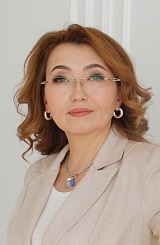Қазақстан Республикасының жоғары оқу орындарындағы академиялық ұтқырлықтың жағдайы мен даму болашағы
https://doi.org/10.51176/1997-9967-2022-1-127-143
Аңдатпа
Мақаланы жазу мақсаты – Қазақстан университеттеріндегі академиялық ұтқырлықтың жағдайы мен даму перспективаларын зерттеу. Академиялық ұтқырлық бағдарламасы жүзеге асырыла бастаған сәттен бастап университеттердің мәртебесі жақсы жаққа қарай айтарлықтай өзгерді, атап айтқанда еңбек нарығында сұранысқа ие болатын және бәсекеге қабілетті мамандар болуға мүмкіндік беретін шетелдік модельдерді, мәдениетті, кәсіби ортаны, құзыреттер мен білім тәсілдерін зерделеу арқылы түлектердің әлеуетін арттыруға мүмкіндік беретін білім сапасы арта бастады. Академиялық ұтқырлық аясында студенттер жаңа құзыреттерге ие болады, басқа әлеуметтік-мәдени ортада қарым-қатынас дағдыларын алады. Мұның бәрі еңбек нарығында бәсекеге қабілеттілікті, табысты кәсіби мансап құруды қамтамасыз ететін олардың кәсіби және жеке қасиеттерін жақсартуға ықпал етеді. Мақалада Қазақстан Республикасы Білім және ғылым министрлігінің 2019-2020 жылдар аралығындағы Болон процесі және академиялық ұтқырлық орталығының, Оңтүстік Қазақстан университетінің Болон процесі және академиялық ұтқырлық орталығының мәліметтері, сондай-ақ шетелдік және отандық ғалымдардың еңбектері келтірілген. 2020-2022 жылдары экономикалық және саяси факторлардың, сондай-ақ COVID-19 әсерінен академиялық ұтқырлық шарттары өзгерді. Нәтижесінде әлемнің көптеген елдеріндегі университеттер гибридті оқыту формаларына көшті. Мақалада М. Әуезов Оңтүстік Қазақстан университеті мысалында академиялық ұтқырлықтың кәсіби құзыреттілікті арттырудағы, сондай-ақ студенттердің тілдік және мәдениетаралық дағдыларын дамытудағы рөлін анықтау үшін жүргізілген далалық зерттеулердің нәтижелері келтірілген. Жүргізілген зерттеу қорытындысы бойынша академиялық ұтқырлық Қазақстан экономикасы үшін бәсекеге қабілетті мамандарды даярлауда маңызды және шешуші фактор болып табылады және университеттің қалыптасуында маңызды рөл атқарады деген қорытынды жасалды.
Авторлар туралы
Ш. А. ЕсімоваҚазақстан
экономика ғылымының докторы
Республика 30, 101400, Теміртау
Л. А. Хасенова
Қазақстан
Doctoral student
Тәуке Хан 5, 160012, Шымкент
Әдебиет тізімі
1. Barnett, R., & Fulford, A. (2020). Philosophers on the University. Springer, New York.
2. Strategy for the internationalization of higher education until 2025 and the roadmap for the implementation of its implementation. (In Russ.)
3. On amendments to the order of the Minister of Education and Science of the Republic of Kazakhstan dated November 19, 2008 No. 613 “On approval of the Rules for sending students to study abroad, including within the framework of academic mobility”. Order of the Minister of Education and Science of the Republic of Kazakhstan dated February 25, 2021 No. 77. Registered with the Ministry of Justice of the Republic of Kazakhstan on March 2, 2021 No. 22281. (In Russ.)
4. Report on the work done by the Center for the Bologna Process and Academic Mobility of the SKU for the 2019–2020 academic year (2020). Shymkent: Current Archive of the Center for the Bologna Process and Academic Mobility of SKSU. (In Russ.)
5. Borchgrevink, H.M., & Scholz, B. (2013). New Concepts of Researcher Mobility: A Comprehensive Approach Including Combined/Part-Time Positions. Science Policy Briefing, 49.
6. Børing, P., Flanagan, K., Gagliardi, D., Kaloudis, A., & Karakasidou, A. (2015). International mobility: Findings from a survey of researchers in the EU. Science and Public Policy, 42(6), 811-826. https://doi.org/10.1093/scipol/scv006
7. Grossmann, V., & Stadelmann, D. (2013). Wage Effects of High-Skilled Migration: International Evidence. The World Bank Economic Review, 27(2), 297–319. https://doi.org/10.1093/wber/lht002
8. Perna, L. W., Orosz, K., & Jumakulov, Z. (2015). Understanding the human capital benefits of a government-funded international scholarship program: An exploration of Kazakhstan’s Bolashak program. International Journal of Educational Development, 40, 85-97. https://doi.org/10.1016/j.ijedudev.2014.12.003
9. Kotlyarova, I.O., & Naidanova, Yu.V. (2017). Formation of personal mobility in the system of continuous education: a review. Vestnik Juzhno- Ural’skogo gosudarstvennogo universiteta. Serija: Obrazovanie. Pedagogicheskie nauki, 9(2), 6-26. (In Russ.)
10. Gopaul, B., & Pifer, M. J. (2016). The conditions of movement: A discussion of academic mobility between two early career scholars. Higher Education Quarterly, 70(3), 225-245. https://doi.org/10.1111/hequ.12092
11. Huang, F. (2016). International mobility of students, academics, educational programs, and campuses in Asia. In Reforming learning and teaching in Asia-Pacific universities (pp. 29-46). Springer, Singapore. htt. (2016). International mobility of students, academics, educational programs, and campuses in Asps://doi.org/10.1007/978-981-10-0431-52
12. Greculescu, A. & Todorescu, L. (2016). Language Experience and Engineering Students’ Professional Mobility. New Approaches in Social and Humanistic Sciences, 255-258.
13. Cots, J. M., Aguilar, M., Mas-Alcolea, S., & Llanes, À. (2016). Studying the impact of academic mobility on intercultural competence: a mixed-methods perspective. The Language Learning Journal, 44(3), 304-322. https://doi.org/10.1080/09571736.2016.1198097
14. Iucu, R., Pânişoară, I. O., & Pânişoară, G. (2011). The Professional Mobility of Teachersnew tendencies in the global society. Procedia-Social and Behavioral Sciences, 11, 251-255. https://doi.org/10.1016/j.sbspro.2011.01.071
15. J Jones, A.E. (2009). Social Mobility in Late Antique Gaul: Strategies and opportunities for the non-elite. Cambridge University Press. https://doi.org/10.1017/CBO9780511596735
16. Beech, S. (2017). International student mobility: A critical overview. Laboring and learning, 10, 285.
17. Bi Bijwaard, G. E., & Wang, Q. (2016). Return migration of foreign students. European Journal of Population, 32(1), 31-54.
18. Collins, F. L. (2012). Researching mobility and emplacement: examining transience and transnationality in international student lives. Area, 44(3), 296-304.
19. Wu, C., & Wilkes, R. (2017). International students’ post-graduation migration plans and the search for home. Geoforum, 80, 123-132.
20. Balasooriya, C., Asante, A., Jayasinha, R., & Razee, H. (2014). Academic mobility and migration: Reflections of international academics in Australia. In Academic mobility. Emerald Group Publishing Limited. https://doi.org/10.1108/S1479-362820140000011013
21. Nurmagambetov, A.A. (2017). Academic mobility of universities of Kazakhstan: state and prospects. Almaty. (In Russ.)
22. Akhmatova, A.A. & Ordabayeva, S.K. (2016). Academic mobility as a basis for the development of international cooperation. Vysshaya shkola [High school], 4, 27-28.
23. Ministry of Education and Science of the Republic of Kazakhstan Country report: on the implementation of the parameters of the Bologna process in the universities of the Republic of Kazakhstan. Center for the Bologna process and academic mobility, (2020) [updated February 16, 2021; cited January 15, 2022]. Available: https://enic-kazakhstan.edu.kz/ru/reference_information/documents (In Russ.)
24. Ackers, L. (2008). Internationalisation, mobility and metrics: A new form of indirect discrimination?. Minerva, 46(4), 411-435.
Рецензия
Дәйектеу үшін:
Есімова Ш.А., Хасенова Л.А. Қазақстан Республикасының жоғары оқу орындарындағы академиялық ұтқырлықтың жағдайы мен даму болашағы. Economy: strategy and practice. 2022;17(1):127-143. https://doi.org/10.51176/1997-9967-2022-1-127-143
For citation:
Yessimova Sh.А., Khassenova L.A. The Current State and Prospects for the Development of Academic Mobility in the Universities of the Republic of Kazakhstan. Economy: strategy and practice. 2022;17(1):127-143. (In Russ.) https://doi.org/10.51176/1997-9967-2022-1-127-143

























